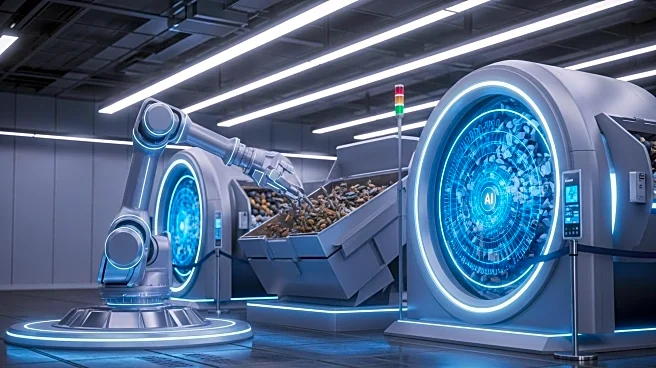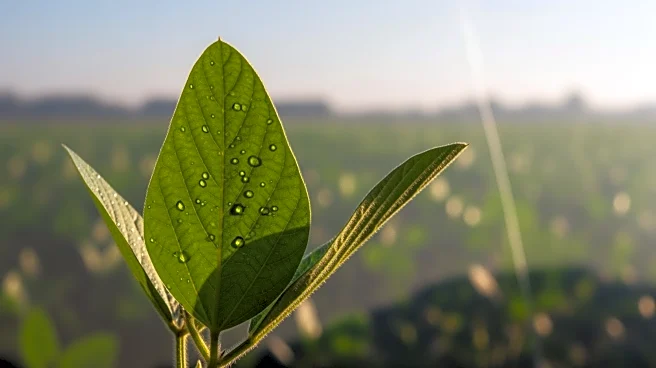What is the story about?
What's Happening?
Artificial intelligence is revolutionizing the recycling industry, particularly in the sorting and identification of packaging waste. This transformation has gained national attention with the inclusion of AI-driven technologies from companies like AMP One, Glacier, and Greyparrot in Time Magazine's 2025 Top 100 Innovations list. These technologies are enhancing the efficiency of material recovery facilities (MRFs) and consumer packaged goods (CPGs) companies by improving sortation accuracy and traceability. The AI systems provide valuable data that helps brands understand how their packaging performs in terms of recyclability and consumer interaction. This recognition by Time Magazine highlights the growing importance and potential impact of AI in the recycling sector.
Why It's Important?
The recognition of AI-powered recycling technologies in Time's Top 100 Innovations list underscores the significant role these systems play in advancing sustainable practices within the packaging industry. By improving the accuracy of waste sorting and providing detailed insights into packaging performance, these technologies can help reduce environmental impact and promote circular economy principles. Companies like Amazon, which collaborate with these AI-driven solutions, stand to benefit from enhanced data on packaging recyclability, potentially leading to more sustainable packaging designs. This development could drive industry-wide changes, encouraging more companies to adopt AI technologies to meet sustainability goals and improve waste management processes.
What's Next?
The inclusion of AI-powered recycling technologies in Time's prestigious list may lead to increased investment and interest in these systems from both the public and private sectors. As more companies recognize the benefits of AI in waste management, there could be a surge in the adoption of these technologies across various industries. This could result in improved recycling rates and more efficient waste management practices, contributing to broader environmental sustainability efforts. Additionally, the data generated by these systems could inform future packaging designs, leading to innovations that prioritize recyclability and reduce waste.
Beyond the Headlines
The integration of AI in recycling processes not only enhances operational efficiency but also raises ethical and cultural considerations regarding technology's role in environmental stewardship. As AI systems become more prevalent, discussions around data privacy, transparency, and the potential displacement of human workers in recycling facilities may emerge. Furthermore, the success of these technologies could inspire similar innovations in other sectors, promoting a culture of technological advancement aimed at solving environmental challenges.














